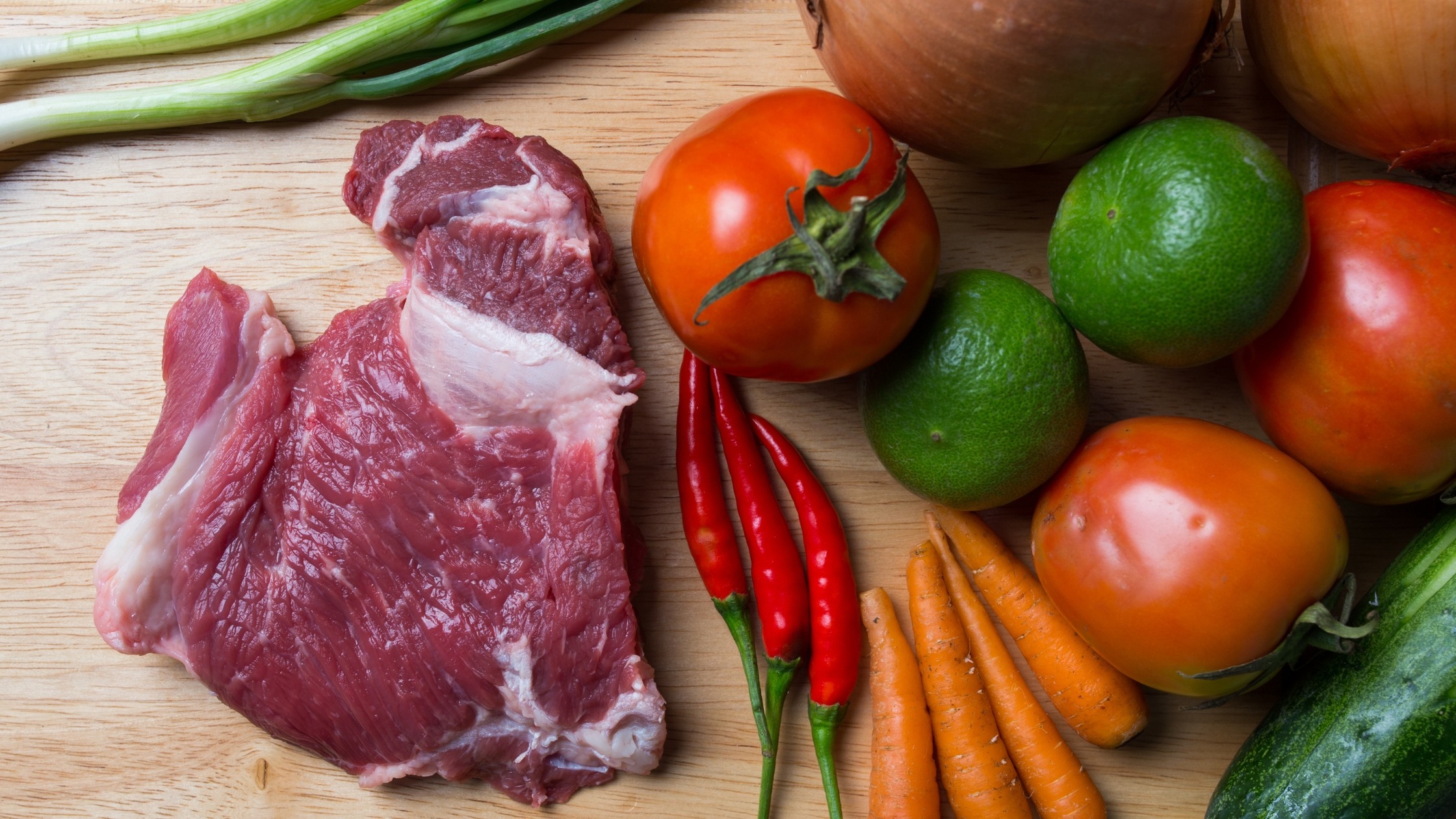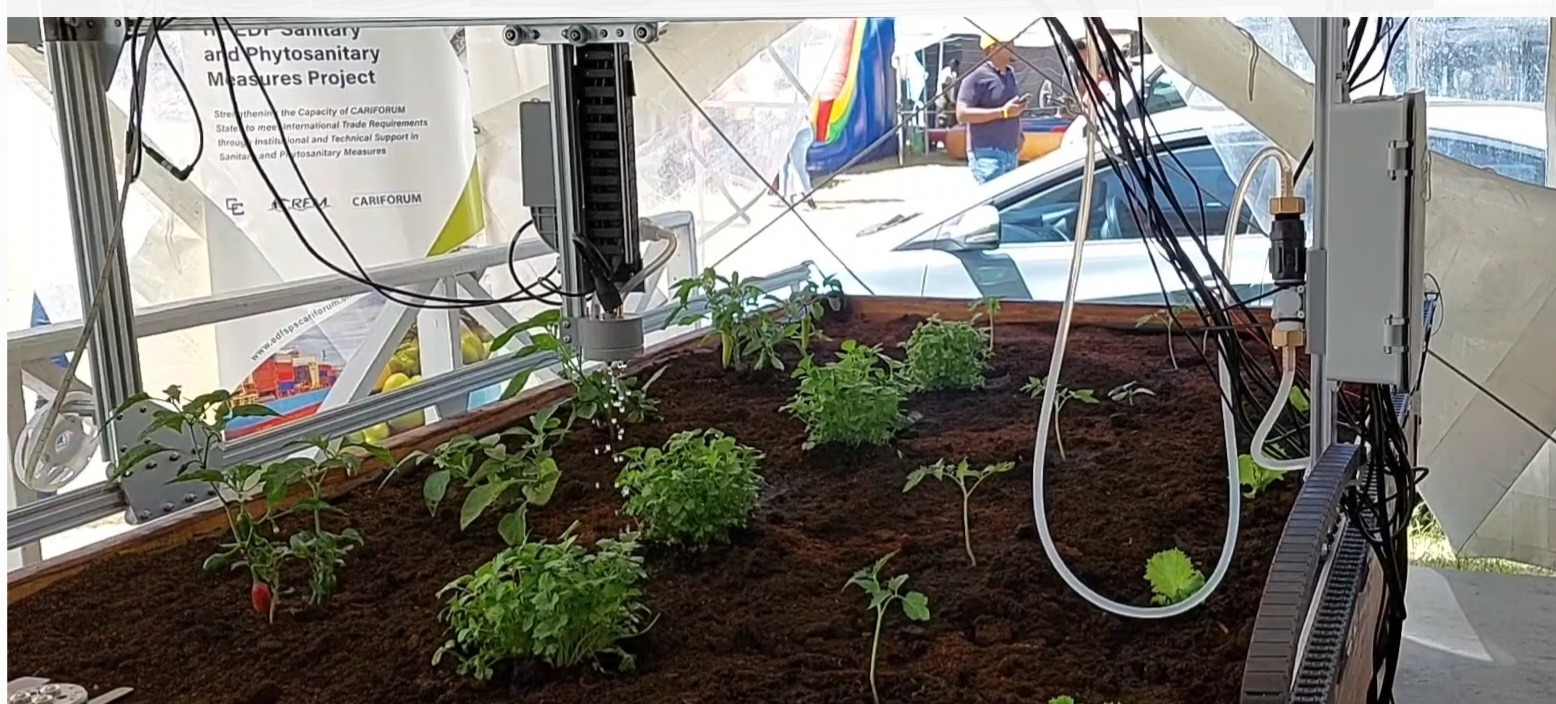
19 Apr Smart Technology, Youth and Black Belly Sheep: Platforms for Barbados’ Food Security Showcased at the Island’s Agrofest
Barbados is turning to technology, training and research and development to increase agricultural output as it, and other CARICOM members aim for 25 percent reduction in food imports by 2025 and food security for citizens. Smart agriculture for crop production and a move to increase the population of the indigenous black belly sheep were two areas of particular interest showcased at the island’s national agricultural exhibition, Agrofest in February 2023.
Smart technology for crop production
At a two-day forum held in November 2021 and co-hosted by the Food and Agricultural Organisation and the Government of Fiji, Barbados’ Minister of Agriculture, Indar Weir talked about the proposed creation of an Innovation Centre to feature agricultural exhibits and devices “related to Extended Reality” and “The Internet of Things (IoT).” [Barbados Advocate]
During Agrofest, glimpses of what this Innovation Centre could contribute were on display at the Queens Park, Bridgetown, venue. Technical Specialist with the Inter-American Institute for Cooperation on Agriculture (IICA) delegation in Barbados, Dr. Roxanne Waithe, giving background to their display said that, “One of our key projects is the Barbados Innovation Centre for Agriculture where we hope that farmers will come and take a look at the technologies that they can possibly apply on their small and medium-sized farms.”
The popular exhibit showcased a “farmbot” and a “green machine”, two ‘tasters’ of the proposed Centre. Dr. Gibbs explained that, “Our farmbot is an app-based computer system that can do several things in farming including seeding, rotavating (tilling) the soil; it can do irrigation; it can help measure out your plot accurately…”
The green machine is a small aquaponics system where fish and plants can be raised at the same time for “backyard gardening and for home food security.” Also on show was a virtual reality experience where patrons could, through a VR headset, see the world of bees and how they pollinate plants to gain an appreciation for bees’ importance in plant reproduction.

Training Youth in Smart Agriculture
Also evident at this booth was the involvement of youth who were operating the systems. In fact, through Dr. Gibbs’ efforts, the IICA Barbados has been undertaking a Youth Farm Summer Programme since 2012, which aims to help young people see farming as a viable career option. The eight-week intensive programme, trains secondary school agricultural science students in the fourth and fifth forms (ages 14 and 15) to gain National Vocational Qualifications (NVQs) or Caribbean Vocational Qualifications (CVQs) by attaining competency in areas including Crop Production, Aquaculture Grow Out Operations and Agro Processing.
This Farm Summer Programme has so far trained over 200 students. It has also helped spark the formation of Future Farmers, a project in collaboration with the Barbados Environmental Conservation Trust (BECT) to create a database of the programme’s graduates who have remained in agribusiness and to “share best practices in agricultural innovation in the agrifood sector.”
Increasing the Black Belly Sheep Population
On the livestock side of agriculture, a push in recent years to increase the population of indigenous black belly sheep and develop an industry to eventually eliminate sheep meat imports has gained momentum. According to Neil Yarde, Senior Agricultural Assistant at the Ministry of Agriculture assigned to the Black Belly Sheep Programme, the island now imports BDS $15 million in sheep meat each year. To replace this with local supplies, Yarde estimates that about 60,000 sheep would be needed, however numbers are currently less than 20,000.
Black Belly Sheep Characteristics, Meat and Nutrition
Also speaking to Caribbean Pivot from Agrofest, he noted that the animal is considered one of the “best hair sheep in the world” (hair sheep are those whose coats don’t require shearing). The Black Belly Sheep originated nearly three centuries ago from cross breeding between hair sheep from the African and European continents brought to the island by colonisers. With Barbados’ isolated position in the Caribbean island chain, the breed developed unique characteristics over the centuries.
For one thing, they are known as prolific animals, producing three or four lambs in a litter whereas most hair sheep produce just one or maybe two. Black Belly Lamb also provides low fat meat and is a good source of vitamin B12, which supports the formation of red blood cells and prevention of anaemia and vitamin B3 known to be important for healthy skin.
Improving Black Belly Sheep Rearing
Mr. Yarde noted that training farmers in the proper techniques of rearing black belly sheep for the best results will be an important activity for the programme. So too is a plan to develop sheep feed from local inputs. The latter is already at a test stage with a feed developed from local river tamarind, sweet potato peels, cassava peels, molasses and some minerals. If the test is successful, this would be a significant win as Yarde noted that the cost of feed is about 80 percent of the cost in rearing the sheep. Currently, feed and or its inputs are imported and as Yarde said,
“Right now the feed is so expensive with the world situation and if we can produce a feed that’s cheap, the farmers would be able to sell the meat cheaper and it would help the consumers, the people of Barbados, to [buy a protein source that is reasonably priced].”
Moving Forward
Agrofest 2023 was the first since a two year break caused by the COVID 19 pandemic. Organisers, the Barbados Agricultural Society (BAS) say that the festival attracts over 60,000 patrons each year, most of whom are school children. If youth involvement in smart agriculture, agricultural research and initiatives like the proposed Innovation Centre for Agriculture and the Black Belly Sheep Programme gain pace this would certainly be a plus for the island’s future food security.

